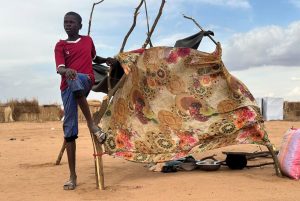 Washington, 19 Ramadhan 1434/27 Juli 2013 (MINA) – Making life easier for Muslim employees, a number of Washington companies are making efforts to accommodate the religious minority prayers and iftar during the holy fasting month of Ramadan.
Washington, 19 Ramadhan 1434/27 Juli 2013 (MINA) – Making life easier for Muslim employees, a number of Washington companies are making efforts to accommodate the religious minority prayers and iftar during the holy fasting month of Ramadan.
“When the Muslims who work in our company are having their daily prayers they provide us space for prayer so that we can have a quiet place to pray, and that’s year round,” Rizwan Jaka, a board member of the All Dulles Area Muslim Society (ADAMS), the largest mosque in the Washington, D.C. area, Onislam quoted by Mi’raj News Agency (MINA) as reporting.
“And then, beyond that in the month of Ramadan when we’re fasting, the company is very respectful of that as well…Like if there’s a team lunch, instead of having a team lunch we’ll have a team dinner after sunset.”
Jaka praised the American corporation that he works for being very respectful of him as a Muslim.
Also Read: UN Member States Renew Calls for Reform as Organization Marks 80th Anniversary
He is not alone.
A growing number of American companies were trying to accommodate their Muslim employees during the holy fasting month of Ramadan.
Sami Malek is a Muslim observing his first Ramadan in the US since arriving from Algeria less than a year ago.
Surrounded all day by the sight and smell of food and drink, the 23-year-old graduate student was not deviated from his faith.
Also Read: Trump Warns Israel Could Lose All US Support Over West Bank Annexation
“When I make good service and people are enjoying the food, I feel happy,” he said.
“When people tell me ‘It’s good food, I like it, it’s very delicious,’ I feel good.”
“If you want to do Ramadan, you do it, and you have to do it because you are Muslim,” he said.
“Usually the first day is hard; first day, second day, but after that, it’s like habituation.”
Also Read: Trump: Israel ‘Not Going to Do Anything with West Bank’ After Annexation Vote
Malek was lucky enough to work a waiter at a popular Middle Eastern restaurant and market owned by a Muslim.
“To start off, I give them frequent breaks throughout the entire day to go pray,” Imad Rababeh, manager of the Mount of Lebanon restaurant where Malek works, said.
“I pretty much give them all the time to eat at Iftar time and they have frequent breaks throughout the day and if they get tired I allow them to sit.”
Temptations
Also Read: Mahmoud Khalil Accuses Trump Administration of Silencing Pro-Palestine Voices
For American Muslims, Ramadan challenges are not always related to abstaining from food and water from dawn to dusk.
Twenty-year-old Muntasir Sarsour points to things that are not always within his control.
“You can’t get away from immodest girls unless you live in a cave. That’s not going to happen,” he said.
“But you just try your best to lower your gaze and keep on moving.”
Also Read: Trump Confirms Gaza Ceasefire Still in Effect Despite Israeli Violations
His friend Junaid Khan agreed.
“There’s difficulties and distractions everywhere, especially in this society here in America,” added.
“You can’t always rely on God to do everything for you. So personally, inside of your heart, you have to try your best.”
Imam Johari, director of outreach at the Dar Al-Hijrah Islamic Center outside Washington, said Ramadan is not supposed to be a hardship.
Also Read: Massive ‘No Kings’ Protests Erupt Across 50 US States Against Trump’s Hardline Policies
“It is meant for people who are mature, who are healthy,” he explained.
“But if you’re pregnant or you’re sick or you’re on a journey, or you’re elderly or you’re a minor, you are not obligated to fast.”
Ramadan, the holiest month in Islamic calendar, started in North America on July 9.
In Ramadan, adult Muslims abstain from food, drink, smoking and sex between dawn and sunset.
Also Read: Mass Layoffs Hit Federal Agencies Amid Trump’s Government Shutdown
The sick and those traveling are exempt from fasting especially if it poses health risks.
Muslims dedicate their time during the holy month to be closer to Allah through prayers, self-restraint and good deeds.
It is customary for Muslims to spend part of the days during Ramadan studying the Noble Qur’an.
Many men perform i`tikaf (spiritual retreat), spending the last 10 days of the month exclusively in the mosque. (T/P013/E1)
Also Read: Brazilian Activist Vows Gaza Aid Flotilla Will Continue Despite Ceasefire
Mi’raj News Agency (MINA)
























 Mina Indonesia
Mina Indonesia Mina Arabic
Mina Arabic